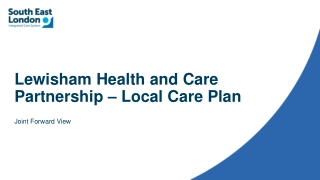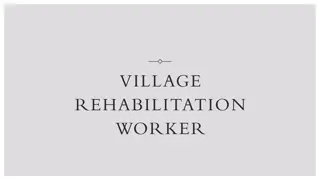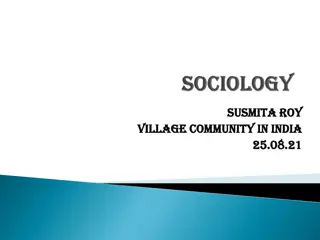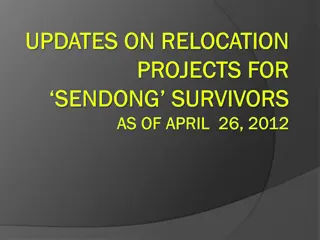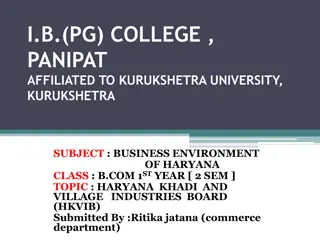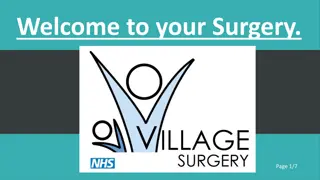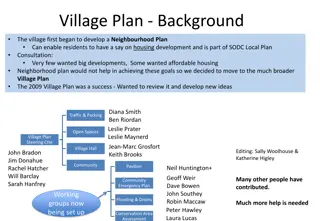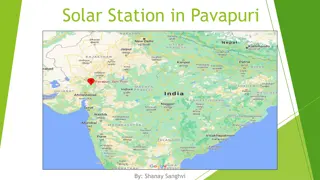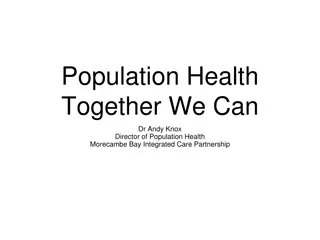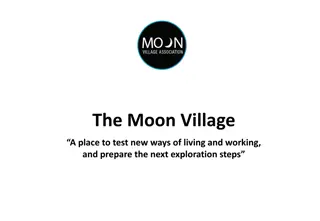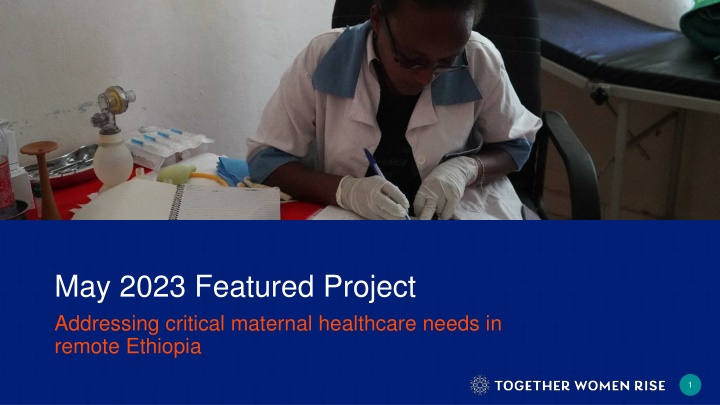
Addressing Critical Maternal Healthcare Needs in Remote Ethiopia
Learn about the Village Health Partnership mission in rural Ethiopia to prevent maternal and neonatal deaths, tackle gynecologic complications of childbirth, and improve access to skilled delivery assistance and emergency obstetric care. Discover the challenges faced by women in rural areas and the initiatives like skill checks, training, and mentorship programs aimed at improving healthcare outcomes. Find out how the Basic Emergency Obstetric and Newborn Care training is making a direct impact on nurse-midwives and indirect impact on the community members in Ethiopia.
Download Presentation

Please find below an Image/Link to download the presentation.
The content on the website is provided AS IS for your information and personal use only. It may not be sold, licensed, or shared on other websites without obtaining consent from the author. If you encounter any issues during the download, it is possible that the publisher has removed the file from their server.
You are allowed to download the files provided on this website for personal or commercial use, subject to the condition that they are used lawfully. All files are the property of their respective owners.
The content on the website is provided AS IS for your information and personal use only. It may not be sold, licensed, or shared on other websites without obtaining consent from the author.
E N D
Presentation Transcript
May 2023 Featured Project Addressing critical maternal healthcare needs in remote Ethiopia 1
Introducing Village Health Partnership Mission: to prevent maternal and neonatal death in childbirth and to treat and prevent gynecologic complications of childbirth in rural Ethiopia Targets access to life-saving skilled assistance at delivery and emergency obstetric care 2
About Ethiopia One of the poorest countries in the world One of the highest rates of maternal morbidity and mortality Nearly 80% live in rural areas Young population and high fertility rate Increasing but low use of birth control 3
Life Challenges for women served Rural western and southwestern Ethiopia: some of the poorest and most remote parts of the country Women marry young, give birth again and again Many give birth alone at home 1 in 10 women die in childbirth If health facilities exist, lack resources, trained providers, and sanitation: often deadly places to deliver 4
Skill Check, Training, and Mentorship Program and BEMONC Training Skill Check: experienced nurse- midwife trainers visit rural health clinics to perform skill checks on nurse-midwives Training: nurse-midwife trainers provide on-the-spot training to local nurse-midwives Mentorship: nurse-midwives linked to mentors available for questions and support with difficult cases 5
The Project Basic Emergency Obstetric and Newborn Care (BEMONC) Training: Nurse-midwives who need more intervention: referred to three-week, hands-on, intensive training for 20 nurse- midwives each year YEAR 1 DIRECT IMPACT: 84 (NURSE-MIDWIVES); INDIRECT IMPACT: 350,000 (COMMUNITYMEMBERS) YEAR 2 DIRECT IMPACT: 84 (NURSE-MIDWIVES); INDIRECT IMPACT: 350,000 (COMMUNITYMEMBERS) 6
Budget Item Description Cost Supervisor of the program and nurse midwife trainers will travel to the targeted health facilities to test and train nurse midwives Finance Department at the hospital paid a standard per diem for handling the finances Travel expenses (cost of fuel for travel to and from the rural health facilities) Skill Check, Training, and Mentorship Program $10,400 per year Total: $20,800 $10,000 per year BEMONC Training Includes costs for five trainers fee, trainers per diem, 20 students per diem and transportation Total: $20,000 $40,800 Total 7
About Village Health Partnership Founded in 2010: community leaders in Ethiopia approached founder and president, Margaret Migs Muldrow, MD, to partner to improve maternal health First program was Screen, Transport, and Treat (STT) Became clear that prevention efforts were key to reducing maternal morbidity and mortality Began work to increase number of skilled healthcare providers Skill-building education and training curriculum targets nurse- midwives on the front lines 8
Discussion: Share Your Thoughts How do you think training nurse- midwives in rural communities will impact the community, both in terms of maternal healthcare and other ways? Why do you think it is important that the nurse-midwives have connections to the community in which they work? Why do think a village woman would pursue a career as a nurse-midwife, especially knowing the challenges they face? 9

